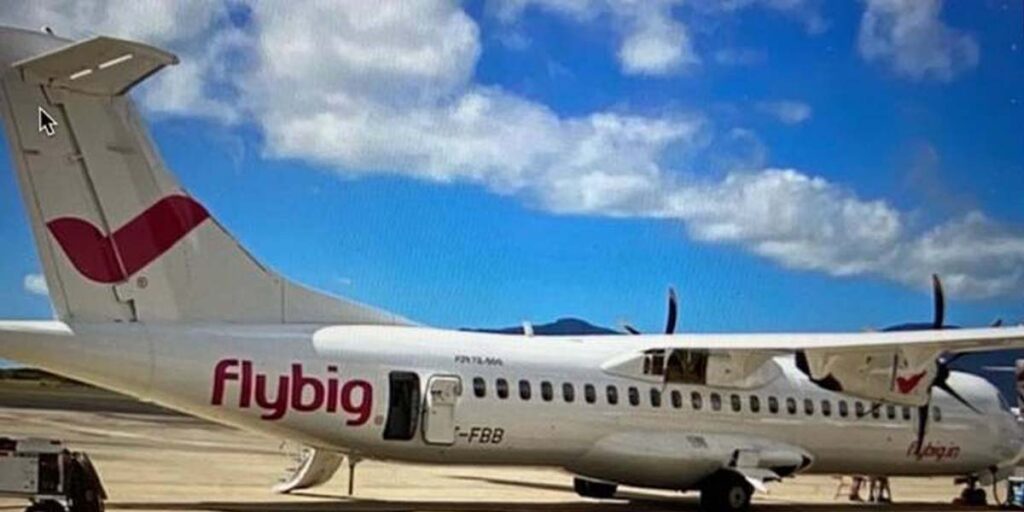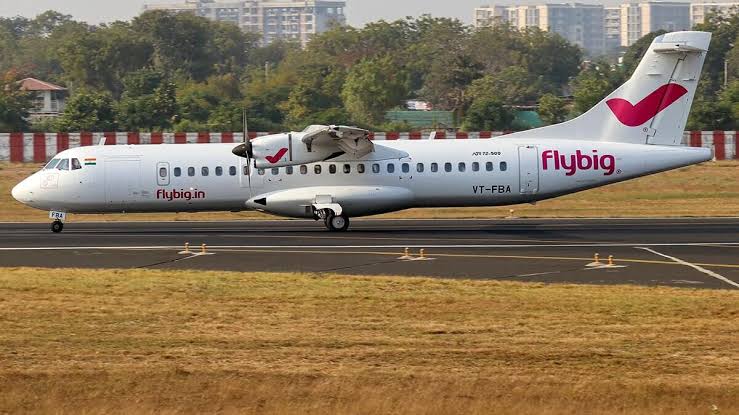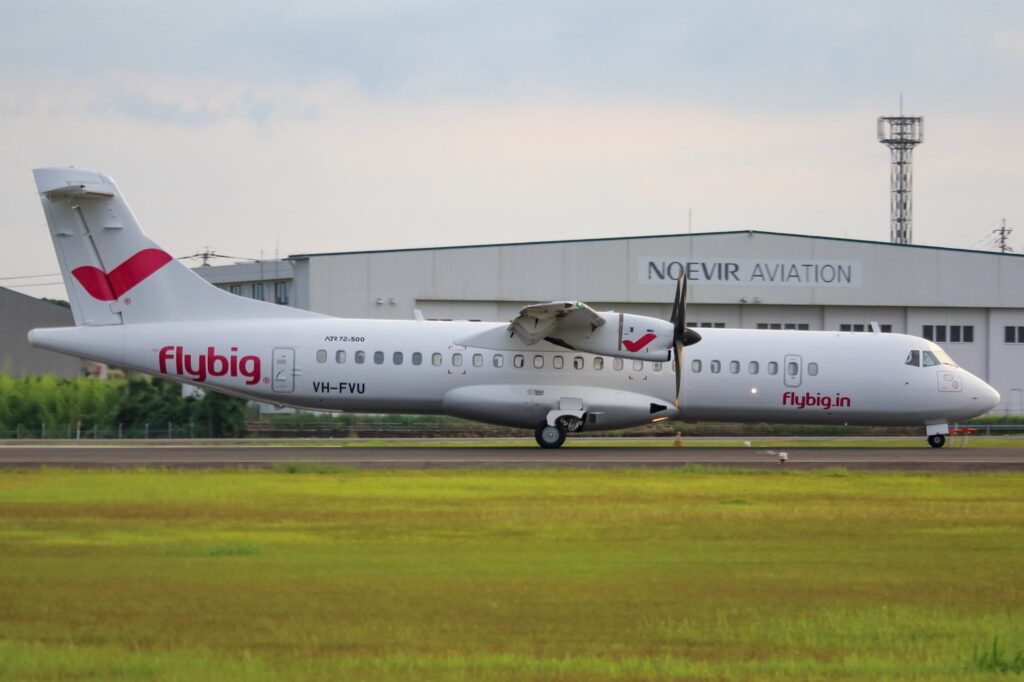The daily flight services between Shillong and New Delhi provided by FlyBig Airlines were a significant financial waste on the part of the Meghalaya government.
No less than Transport Minister Dasakhiatbha Lamare recently acknowledged the state government’s error in signing a contract with FlyBig, admitting openly in the Assembly that the decision was a mistake and the department has since learned a costly lesson after spending more than Rs 2 crore on the matter.

From December 21, 2020, to April 29, 2022, the Meghalaya Transport Corporation (MTC) paid FlyBig Rs 2,00,36,000 in compensation.
Before suspending its operations on October 11 of last year, the airline had flown 732 passengers in 19 days of existence.
In its first 25 days of operation following its restart, the airline carried 1,164 passengers until April of this year.
On September 22, 2020, the MTC and Mumbai-based Big Charter Pvt Ltd, which runs FlyBig, inked a three-year contract.On the basis of the MTC’s review, it was subject to renewal every year.
FlyBig was expected to run Shillong-Delhi flights twice a week (Monday and Friday) for three years according to the agreement, a copy of which is available with The Shillong Times, but there were multiple times when it did not.
A Shillong-Delhi-Shillong round-trip should not take longer than six hours, according to the contract, excepting delays brought on by airport traffic, air traffic controller approvals, and weather.
However, there were frequent flight delays.

The MTC was understanding with the airline and did not charge Big Charter for taking off or landing at Shillong Airport, parking, or lodging.
Each of the 78 seats covered by viability gap funding (VGF) had a cap on the cost of their ticket at Rs 7,000 for a one-way trip.
The agreement stated that MTC would pay the airline operator at the rate of Rs 6,500 per VGF seat on a one-way flight for all 78 seats selected by the operator for VGF and for sponsored seats, as necessary.
Additionally, it was stated that MTC would distribute the VGF to the airline operator to cover all 78 committed seats, regardless of occupancy, for every flight operated on the Shillong-Delhi-Shillong route throughout the contract period.
Another instance of leniency saw the government grant the operator’s request and sponsor 15 seats every one-way flight for three months after the operation began.
The state government agreed to sponsor 15 seats every one-way flight for a period of three months starting from the date of operation “due to the unusual COVID-19 pandemic condition and as per request from the airline operator,” according to the agreement.
A one-way flight’s sponsorship of 15 seats meant that, in accordance with the contract, the state government would sponsor any remaining tickets at a cost of Rs 7,000 per vacant seat.
According to the contract, "For example, if just five seats are reserved for a one-way flight, then MTC shall pay for the 10 sponsored seats that remain empty to the airline operator at the cost of Rs 7,000 per unoccupied sponsored seat which would total to Rs 70,000."
The contract additionally stipulated that no sponsorship for any seat would be applicable for a one-way journey if 16 or more seats were sold, even though it was specified that the payment for sponsored seats would be in addition to the regular VGF seat payment amount (Rs. 6,500) as per the payment terms.
The contract also stipulated that the operator must replace its aircraft with an identical one that is acceptable to the MTC within two calendar days of the MTC’s demand if it is grounded or out of service for more than two consecutive operational days. If this is not done, a penalty of Rs 1 lakh per operational day will be imposed and will be deducted from the operator’s running expenses.

After interested companies Zoom Air, FlyBig, and India Fly Safe complained that the requirements were too strict, MTC’s MD KL Nongbri stated that the request for the proposal for the service was based on the UDAN model and many of the terms were stricter.
Although the bidders claimed that aircraft even older than 15 years are permitted to fly under the UDAN plan, he said that one of the requirements was that the aircraft should not be more than 15 years old.
Flybig informed the government that the DGCA and AAI permit businesses without flights to operate. Hence the government was not required to abide by UDAN regulations.
The government decided to support the company with Rs 6,500 per seat while making it clear that they cannot charge more than Rs 7,000 per seat from passengers, according to Nongbri.
These companies maintain that the service would not be commercially viable without a subsidy. Under this condition, the government permitted them to accept subsidies totalling 100% of a flight’s capacity.
Nongbri claims that after Zoom requested a subsidy of Rs 9,750 per seat, the government changed its request for proposals.
The competing businesses claimed that the terms were unworkable. During this period, FlyBig entered the scene.
While the other bidders had aircraft that could carry 33 passengers, the government requested a Bombardier 400.
Nongbri claimed FlyBig requested a 100 percent subsidy, and the government granted it, despite the fact that the Finance department must first provide its consent before the government can launch any tenders.
The representative claimed FlyBig was solely paid for their services.
He added that FlyBig had asked the Transport department to end the contract and that “We pay them if they fly.” The MoU has not yet been discarded.
Also Read:
Boeing aircraft deliveries reached multi-year highs in June
Jet Airways hired former Go First executives as network planning and revenue management executives
Join our telegram group for the latest updates-
Stay tuned…
